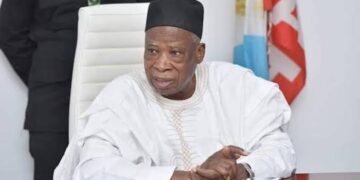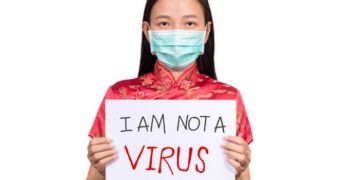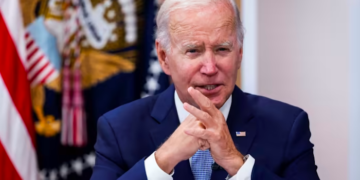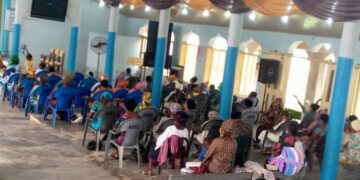The Independent National Electoral Commission (INEC) has issued a stern warning to candidates and political parties about the dangers of using disguised individuals, public buildings, and places of worship in election campaigns.
The commission requested that all political parties strictly adhere to the Electoral Act’s stipulations in order to avoid penalties. Elections for the presidency and National Assembly were scheduled for February 25, 2023, and INEC had set the campaign period to begin on September 28.
Mr. Festus Okoye, INEC’s National Commissioner and Chairman of its Committee on Information and Voter Education, has cited Section 92 of ] the Electoral Act, 2022 to argue that political campaigns must be conducted in a respectful and non-abusive manner.
Some political parties and their candidates have been known to use theatrical techniques, such as the usage of masqueraders, to enliven and entertain crowds at election rallies in the past. To win over public personnel and religious followers, several candidates also engaged in clandestine campaigning in government buildings and religious institutions, especially churches and mosques.
A political campaign or slogan shall not be tainted with harsh language directly or indirectly likely to hurt religious, ethnic, tribal, or sectional sensibilities,” Okoye added, quoting from the terms of the clause.
Therefore, political campaigns should not use language that is abusive, intemperate, slanderous, or base and is intended to or likely to elicit violent reaction or feelings.
“Subsection 3 specifies that houses of worship, police stations, and public offices may not be utilized for political campaigns, demonstrations, processions, or the promotion, propagation, or criticism of political parties, candidates, programs, or ideologies.
“No political party, aspirant, or candidate shall knowingly employ or use masqueraders in connection with any political campaign or activity.”
Okoye, citing subsection (5) of Section 92, cautioned parties and candidates against training or enlisting the help or services of individuals or groups for the purpose of displaying physical force or coercion in a manner that could arouse reasonable apprehension during the campaigns, as was seen in some previous elections where parties hired thugs to repel detractors.
Some political parties have been known to hire goons in the past to keep their rallies safe and secure against disruption by their opponents.
Okoye clarified Section 6 of the Act, saying, “A political party, aspirant, or candidate shall not keep or use armed private security organization, vanguard, or any other group or individual by whatever name called for the purpose of providing security, assisting, or aiding the political party or candidate in whatever manner during campaigns, rallies, processions, or elections.”
The national commissioner for INEC stressed the importance of compliance, saying that the Act’s provisions for sanctions against offenders should be given top priority by all parties and candidates.
In conjunction with subsections 7(a)(b) and 8, Okoye stated, “A political party, aspirant, or candidate who contravenes any of the provisions of Section 92 of the Act commits an offence and is liable on conviction to a maximum fine of N1,000,000 or imprisonment for a term of 12 months; and in the case of a political party, to a fine of N2,000,000 in the first instance, and N1,000,000 for any subsequent offence.”
A fine of N500,000 or imprisonment for a term of three years, or both, may be imposed upon anyone who “aids or abets a political party, an aspirant, or a candidate in organizing or equipping any person or group for the purpose of enabling them to be employed for the use or display of physical force.”
He went on to say, “Section 93 of the Act prohibits a party, candidate, aspirant, person or group of persons from directly or indirectly threatening any person with the use of force or violence during any political campaign to compel that person or any other person to support or refrain from supporting a political party or candidate.”
To quote the actual text of the law: “A political party, candidate, aspirant, person, or group of persons that contravenes the provisions of Section 93(1) of the Act commits an offence and is liable on conviction to a maximum fine of N1,000,000 or imprisonment for a term of 12 months; and in the case of a political party, to a fine of N2,000,000 in the first instance, and N500,000 for any subsequent offence.”





























